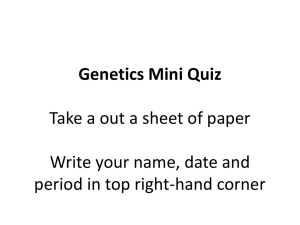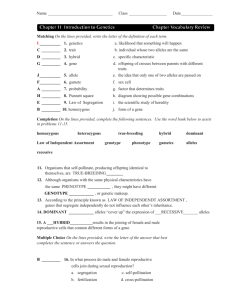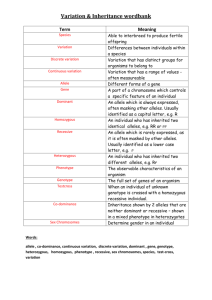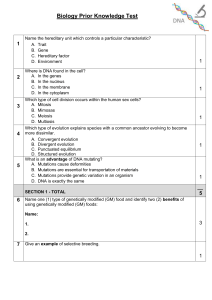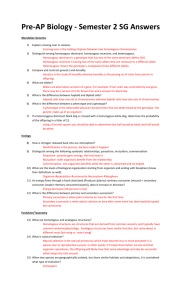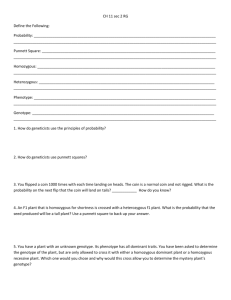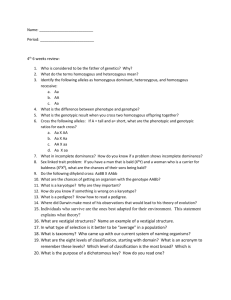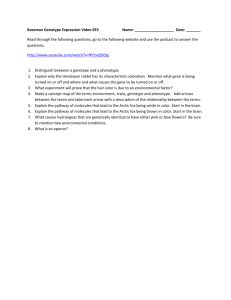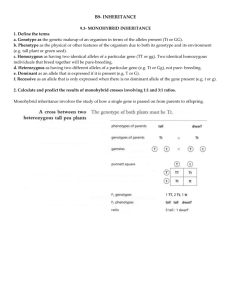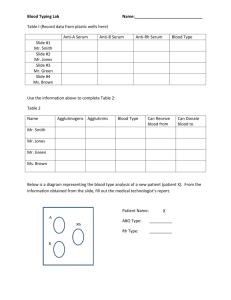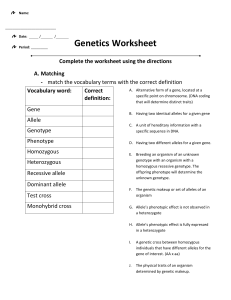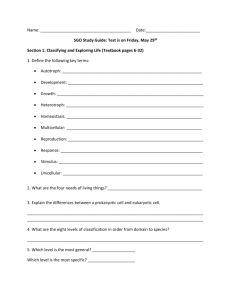Genotype and Phenotype - Grange Academy
advertisement
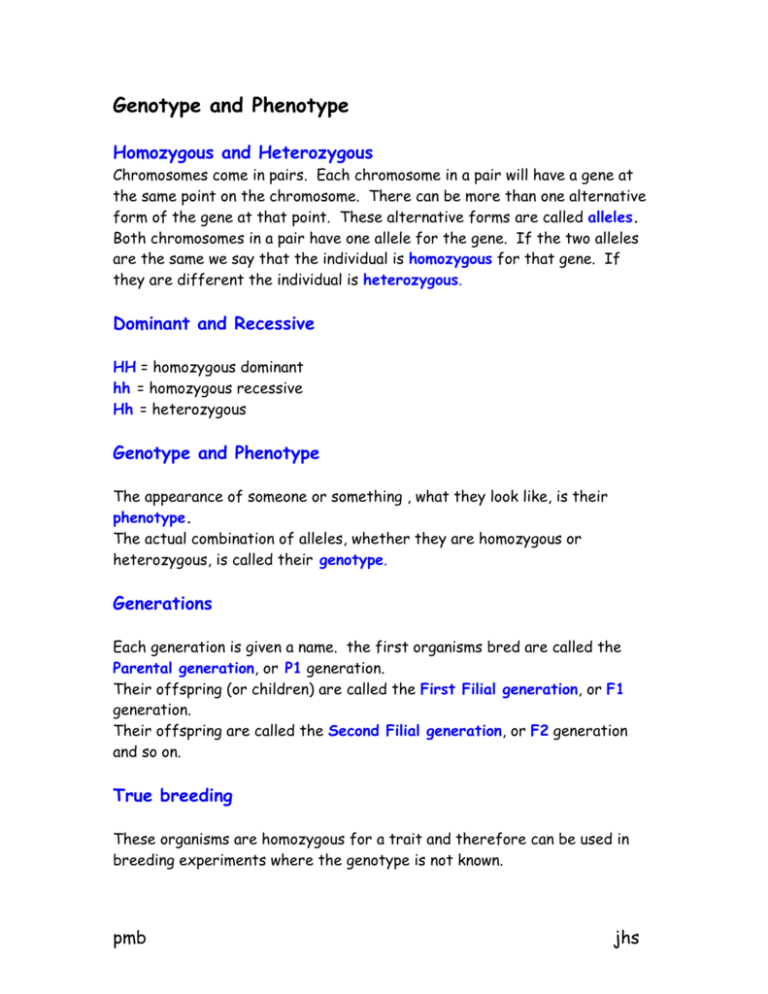
Genotype and Phenotype Homozygous and Heterozygous Chromosomes come in pairs. Each chromosome in a pair will have a gene at the same point on the chromosome. There can be more than one alternative form of the gene at that point. These alternative forms are called alleles. Both chromosomes in a pair have one allele for the gene. If the two alleles are the same we say that the individual is homozygous for that gene. If they are different the individual is heterozygous. Dominant and Recessive HH = homozygous dominant hh = homozygous recessive Hh = heterozygous Genotype and Phenotype The appearance of someone or something , what they look like, is their phenotype. The actual combination of alleles, whether they are homozygous or heterozygous, is called their genotype. Generations Each generation is given a name. the first organisms bred are called the Parental generation, or P1 generation. Their offspring (or children) are called the First Filial generation, or F1 generation. Their offspring are called the Second Filial generation, or F2 generation and so on. True breeding These organisms are homozygous for a trait and therefore can be used in breeding experiments where the genotype is not known. pmb jhs Monohybrid crosses The initial parents are true breeding but of different phenotypes. The numbers or ratio of the F2 offspring usually fall within expected ratios. They sometimes differ from the expected because we do not study enough of the offspring. pmb jhs Co-dominance Polygenic Inheritance More than one gene is involved and usually a gradation of the characteristic is seen e.g. seed mass in plants and skin colour in humans. This is due to the interaction of the alleles of several genes.. The final appearance of an organism (phenotype) is the result of its genotype and the effects of the environment. Organisms of identical genotype subject to different environmental conditions show considerable variation. Since these differences are not passed from one generation to the next they do not affect evolution. pmb jhs
